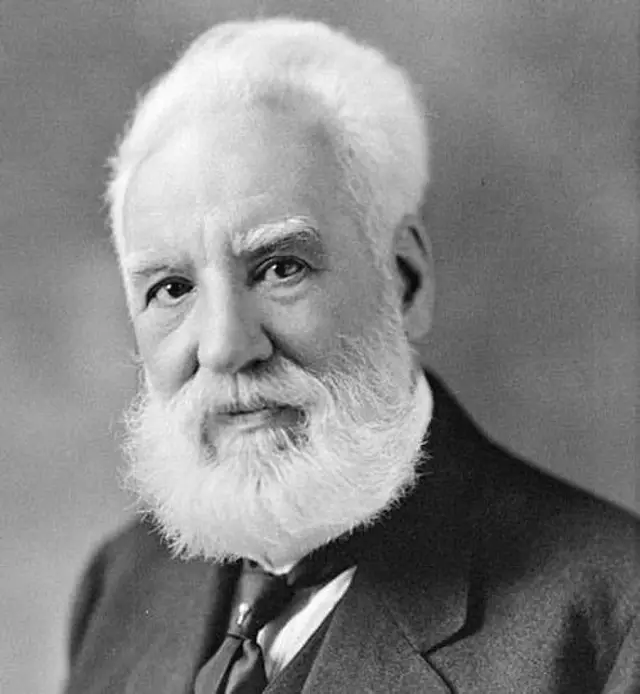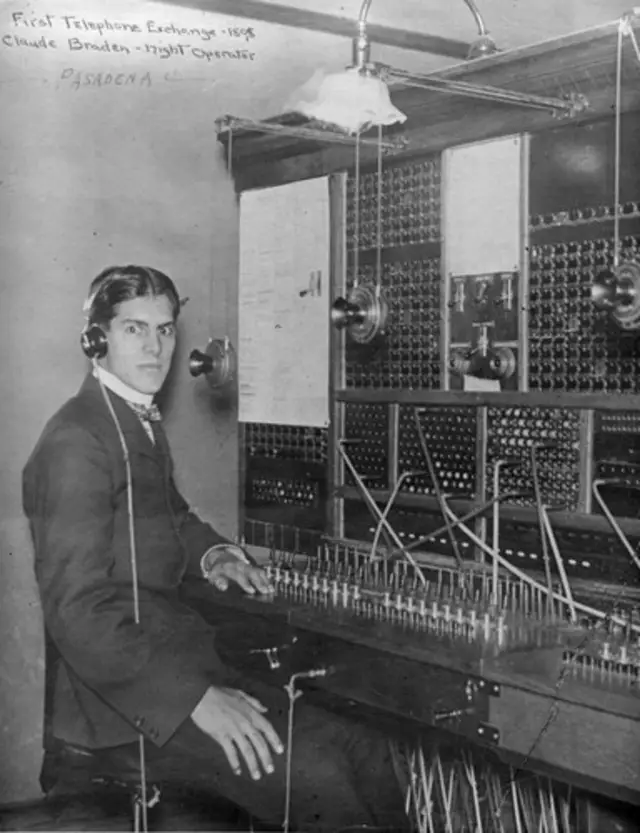Let that sink in for a second. Alexander Graham Bell, the guy credited with inventing the telephone, didn’t want one in his house. The thing that now buzzes, dings, rings, and basically runs your life? He helped make it real. And then decided… eh, maybe not.
So who was this man, really? A genius tinkerer? A reluctant tech dad? A visionary, or someone who just got caught up in a wild, history-changing moment?
Let’s unravel the tangled cords of Bell’s story. Spoiler: it’s a lot more surprising than just “he invented the telephone.”
The Son of Sound
Bell was born in 1847 in Edinburgh, Scotland, into a family obsessed with sound. Not music exactly, but sound itself. His dad, Alexander Melville Bell, developed a system for teaching the deaf to speak, and his grandfather taught elocution. So young Alex basically grew up immersed in articulation, phonetics, and the magic of language.
He also had tragedy woven into his DNA. Both of his brothers died of tuberculosis. His mother went deaf when he was a boy. And later, his wife, Mabel, would also be deaf.
But here’s the beautiful part: none of this made him bitter. Instead, he got curious. He didn’t just want to help people hear, he wanted to understand how we hear. Which led him to some pretty wild experiments.
Talking Wires and the Accidental Phone Call
Bell’s obsession with transmitting sound led him to explore how electricity might carry voices through wires. (This was back when electricity still felt like black magic to most people.) He and his assistant, Thomas Watson, spent countless hours trying to build a “harmonic telegraph” that could carry multiple messages at once.
Then, on March 10, 1876, it happened.
Bell, fiddling with his latest prototype, spilled acid on himself and shouted the now-famous words: “Mr. Watson, come here, I want to see you.”
Watson, in another room, heard it, through the wire.
It wasn’t supposed to be a phone call. But it became one.
And just like that, history changed.

The Lawsuit Avalanche
You’d think inventing the telephone would make Bell an instant hero. In a way, yes. But in another way, no. Because as soon as he filed the patent, lawsuits started pouring in.
Dozens of inventors, some legit, some wildly optimistic, claimed they had invented the phone first. One of the most famous was Elisha Gray, who filed a similar patent… on the exact same day.
Seriously. The same day.
What followed was a years-long legal slugfest. Bell won, barely, and secured his place in history. But it cost him. Time, money, peace of mind. He didn’t exactly enjoy the fame.
And here’s the kicker: he started to hate phones.
Bell Hated Phones? Really?
Yup.
As odd as it sounds, Bell disliked how phones disrupted human conversation. He thought they were rude, intrusive, and oddly antisocial, like someone barging into your house uninvited and yelling at you to pick up.
He refused to have a telephone installed in his own study. Even when the Bell Telephone Company (which would eventually morph into AT&T) became a telecom juggernaut, he distanced himself from it.
His true passion? Science.
Like, real science. Big-picture stuff.
Wait, He Was Into What Now?
You probably didn’t learn this in school, but Bell was basically the human version of a science fair on fire.
After the telephone, he worked on:
1. Hydrofoils that could skim across water at insane speeds.
2. Early airplanes (his group built the first manned flight in Canada).
3. Sheep breeding (because why not?).
4. Photophone—a device that could transmit sound on a beam of light. It was an early ancestor of fiber optics.
Oh, and he was also one of the co-founders of the journal Science, which is kind of a big deal.
Bell’s real legacy might not be the telephone. It might be that he never stopped asking: What else is possible?
The Deaf Community: His Legacy Gets Complicated
Here’s where the story takes a turn.
Bell’s lifelong work with the deaf was sincere. He taught at schools for the deaf. He married a deaf woman. He genuinely wanted to help.
But he also advocated for “oralism,” the belief that deaf people should learn to speak rather than use sign language. He even argued against the use of sign language in schools. In some cases, he went further, suggesting that deaf people shouldn’t marry each other for fear of creating a “deaf race.”
That part of his legacy is controversial, to say the least. Many in the Deaf community today see him as both a pioneer and a problematic figure, someone who cared deeply, but also imposed harmful views.
It’s messy. And real. Like most history.
So What Do We Make of Bell Now?
Alexander Graham Bell wasn’t a clean-cut hero. He was a mix: genius, innovator, eccentric, sometimes flawed. He brought sound to the silent and then tried to silence how they communicated. He invented the telephone but thought it was annoying.
He was a man out of time, maybe ahead of his time. Or just a man who couldn’t stop tinkering with the universe.
And honestly? There’s something kind of inspiring about that.
The Takeaway: Invent, Reflect, Repeat
What I love about Bell is that he never settled. He didn’t ride one invention into the sunset. He kept creating. He kept questioning. He messed up. He got better. He walked away from success to chase curiosity.
In a world obsessed with being right once and cashing in forever, that’s kind of a radical way to live.
So next time your phone rings at the worst possible moment, and you sigh, just remember: the guy who made it possible didn’t want to answer it either.
Sources:
1. Smithsonian Magazine: The Many Lives of Alexander Graham Bellhttps://www.smithsonianmag.com/
2. PBS: Alexander Graham Bell – A Life https://www.pbs.org/
3. Alexander Graham Bell Association for the Deaf and Hard of Hearing https://agbell.org/
4. Science History Institute on Bell’s Inventions https://www.sciencehistory.org/
5. The Library of Congress: Bell Patent Controversy https://www.loc.gov/

